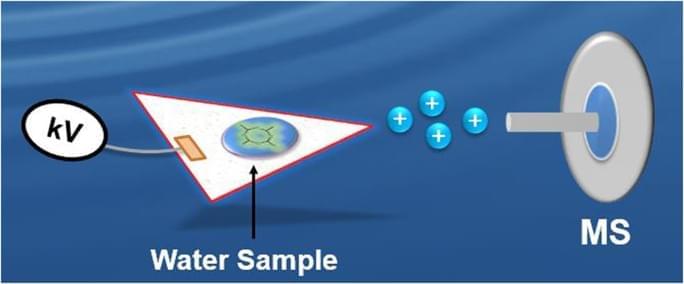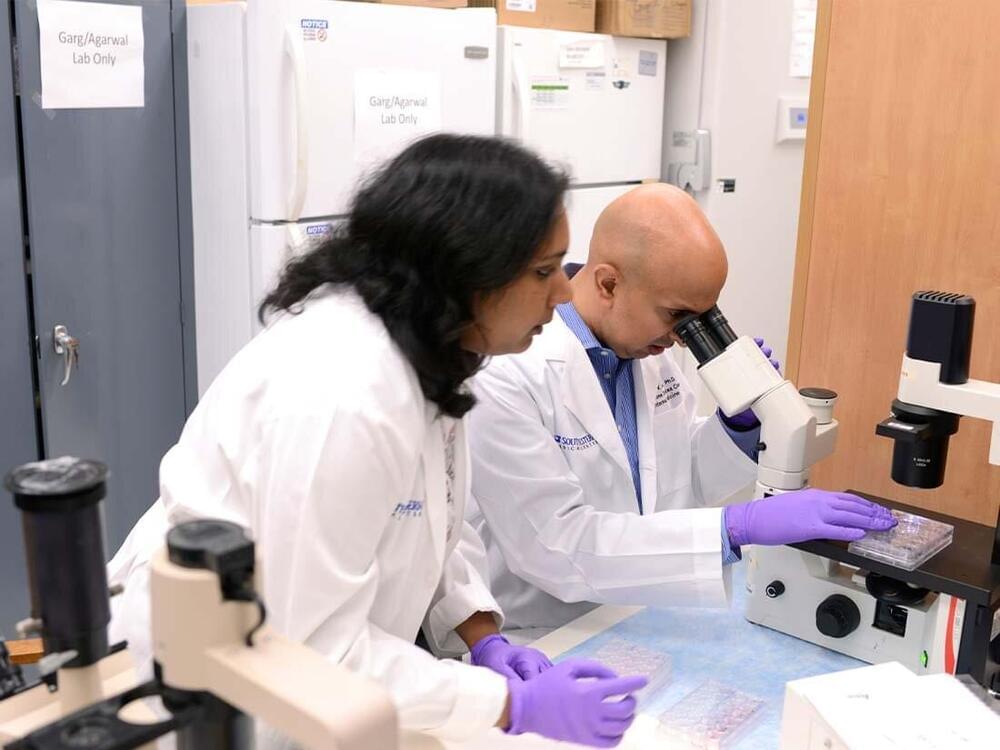The joint patrol first passed through a 12-mile-wide strait between Japan’s main islands in an already significant show of force.
Get the latest international news and world events from around the world.

Direct Analysis and Quantification of Metaldehyde in Water using Reactive Paper Spray Mass Spectrometry
Circa 2016 Basically means we can see contaminated water easier.
Detection and quantification of contaminants or pollutants in surface waters is of great importance to ensure safety of drinking water and for the aquatic environment1,2,3,4,5,6. Metaldehyde (CH3CHO)4 is a cyclic tetramer of acetaldehyde and is used extensively around the world as a molluscicide in agriculture for the control of slugs to protect crops. Large amounts of metaldehyde residues (from ‘slug pellets’) become mobilized, especially during periods of rainfall, seeping into reservoirs, rivers and groundwater, from which drinking water is sourced. Although metaldehyde has low toxicity, cases of metaldehyde poisoning and death in both humans and animals have been reported6,7,8. The United States Environmental Protection Agency (EPA) re-registered metaldehyde as a ‘restricted use pesticide’ and required risk-reduction measures to be adopted due to the potential short-term and long-term effects on wildelife9,10. The World Health Organization (WHO) classifies metaldehyde as a “moderately hazardous” pesticide (class II)11. In Europe, the European Commission has adopted a directive that restricts pesticides levels to 0.1 μg/L in drinking water12,13. Water companies and environmental agencies are under increasing pressure to routinely monitor levels of metaldehyde residues in water courses as part of their legal obligation14. As such there is an increasing need to develop effective analytical methods for detecting and quantifying metaldehyde in water samples at the source. In particular in-situ monitoring is required to ensure water management practices are based on empirical, up-to-date information which provides a better understanding of competing factors, risk and requirement.
Rapid analytical methods for in-situ analysis of metaldehyde in water, if available, would provide critical information on water quality for water companies and regulation bodies to manage exposures. Quantitative analysis of metaldehyde has been reported using various ex-situ methods based on solid-phase extraction8,15 followed by gas chromatography (GC) or high performance liquid chromatography (HPLC) with mass spectrometry (MS)7,14,15,16,17,18. However, each of these analytical methods involves extensive sample preparation including extraction, separation, and derivatization, resulting in increased cost and time of analysis. As will be demonstrated in this study, ambient ionization (AI) combined with tandem mass spectrometry (MS/MS) can overcome such limitations19,20,21,22.
AI is a form of ionization that is performed on unmodified samples in open air and the method is capable of providing almost instantaneous data while minimizing sample preparation22,23,24,25,26,27,28,29. Some of the most popular AI techniques include desorption electrospray ionization (DESI)30, extractive electrospray ionization (EESI)31,32,33,34,35,36, desorption atmospheric pressure chemical ionization (DAPCI)37,38,39, and direct analysis in real time (DART)40,41. AI-MS shows promise as an analytical tool for in-situ applications and has been demonstrated in a variety of fields where timely intervention is highly desirable such as: homeland security23, food safety42, pharmaceutical drug development43, and environmental monitoring44. There are several advantages to using in-situ AI methods capable of onsite analysis.

Russia reports cases of more contagious COVID-19 Delta subvariant
A more contagious subvariant of Detla has been found.
MOSCOW, Oct 21 (Reuters) — Russia has reported “isolated cases” of COVID-19 with a subvariant of the Delta variant that is believed to be even more contagious, the state consumer watchdog’s senior researcher said on Thursday.
The researcher, Kamil Khafizov, said the AY.4.2 subvariant may be around 10% more infectious than the original Delta — which has driven new cases and deaths to a series of record daily highs in Russia — and could ultimately replace it.
However, he said this was likely to be a slow process.


3D-Printing the Czinger 21C Supercar Shows Us the Future of Car Making
Known formally as additive manufacturing, or AM, in the business, the process can make almost anything—even a car.
“For our OEMs, we were able to show a print rate 50% faster than they needed for value production and an assembly rate about 35% faster than they need for full-volume production,” Kevin said. “We have a dozen programs for multi component structures,” said Kevin. “Our first production programs are going to be in vehicles on the road in early 2022. And these are with brands that are within groups that are in the top five global automotive groups by annual volume.”
So, just to review, it’s: computer-designed parts, 3D printers making those parts, which are assembled by robots, in a much smaller space than typical assembly lines.
So no more River Rouge. The Czingers say that carmakers could replace assembly lines that had been a mile long with assembly stations like the one I saw, greatly reducing the lead time, cost, and complexity of car making. And you can switch the car model that you’re building with every new assembly. No more downtime during model-year changeover. And all those spare parts carmakers have to keep in warehouses for 10 years? They will be replaced by instant 3D printing of whatever spare part you need.


China Tested A Fractional Orbital Bombardment System That Uses A Hypersonic Glide Vehicle: Report
That layer would be absolutely essential in trying to defend against a FOBS, that is if a defense at all is actually feasible or even strategically sound. We are not talking about a rogue state here with a few advanced ballistic missiles. China would be able to deploy dozens or even hundreds of these at once. At a certain point, kinetic defenses against such a capability become a losing proposition and a very costly one at that.
Still, this was an early test aboard a full-on rocket used for traditional space access missions. It will take China some time to perfect such a system and package it in a quickly deployable militarized configuration. Major thermal and ablative issues also must be overcome, among others, but it’s not like China hasn’t been working diligently in the hypersonic boost-glide vehicle realm for many years.
Regardless, if this report ends up being fully accurate, one thing is likely: New calls for hugely expensive missile defense capabilities will be ringing loud and often on Capitol Hill, as well as demands to do whatever possible to bring China to the bargaining table in hopes of obtaining some type of strategic arms limitation treaty.

Spectroradiometer “Ray Guns” Let Scientists Use Light Instead of DNA To Tell Plants Apart
The central principle of superconductivity is that electrons form pairs. But can they also condense into foursomes? Recent findings have suggested they can, and a physicist at KTH Royal Institute of Technology today published the first experimental evidence of this quadrupling effect and the mechanism by which this state of matter occurs.


Gene editing can turn storage fat cells into energy-burning fat cells
A team of researchers at UT Southwestern Medical Center’s Touchstone Diabetes Center have successfully used CRISPR gene editing to turn fat cells normally used for storage into energy-burning cells.
“It’s like flipping a switch. We removed the ‘brake’ on the energy burning pathway in fat cells by engineering a mutation that disrupts the interaction between a single pair of proteins,” said study leader Rana Gupta, Ph.D., Associate Professor of Internal Medicine. “Our research demonstrates that releasing this brake in fat cells can potentially help make existing diabetes medications much more effective.”
The research at UT Southwestern, ranked as one of the nation’s top 25 hospitals for diabetes and endocrinology care, is published in Genes and Development and supported by the National Institutes of Health.